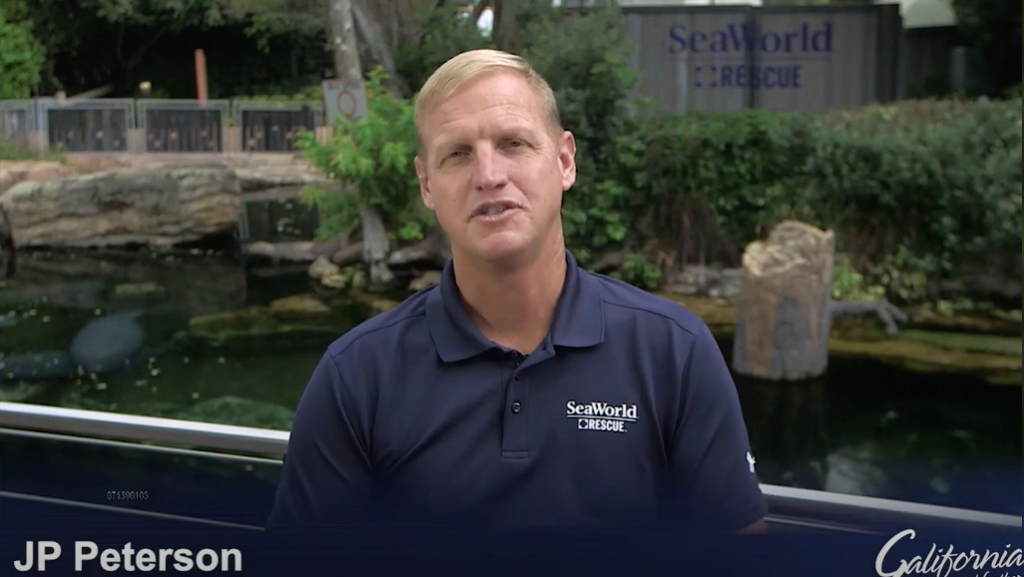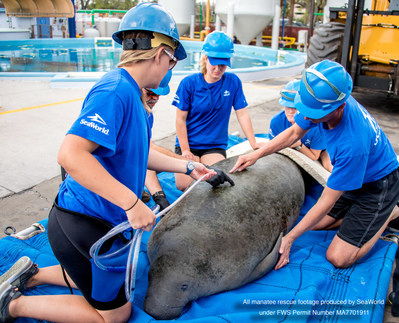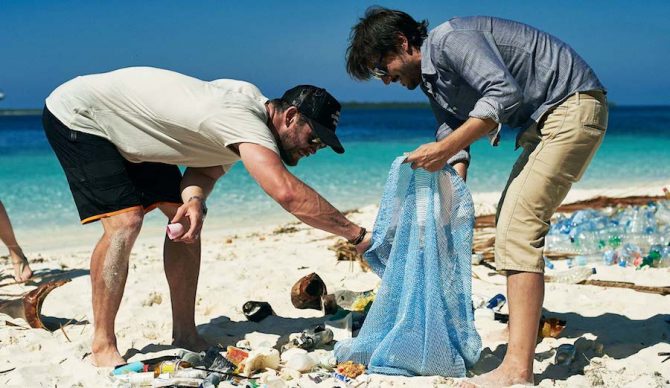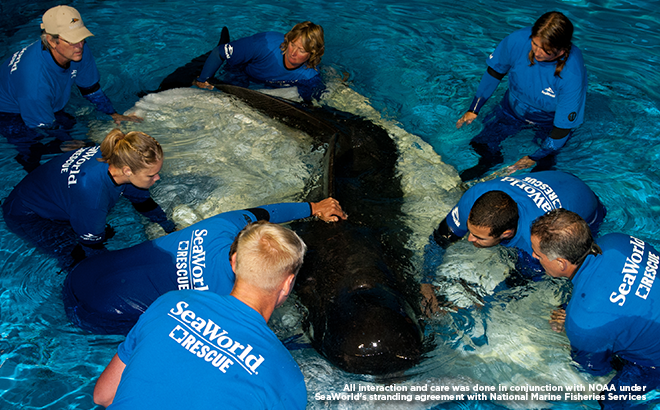For over 50 years, SeaWorld has answered the call for help to endangered turtles, starving manatees, injured seals, and the dolphins and whales entangled in nets.
SeaWorld recently surpassed their 40,000th animal rescue.
California Life interviewed JP Peterson, VP of Zoological Operations and Head of SeaWorld Orlando Rescue team:

“We rescue animals because it’s our mission to care for every sick, ill, injured, or orphaned animal out there. We’ve been doing it since 1965.”
JP Peterson, VP of Zoological Operations and Head of SeaWorld Orlando Rescue Team
This mission has turned into a coast-to-coast rescue operation with a variety of challenges. With three different facilities- SeaWorld in Orlando, San Antonio, and San Diego– the rescue operation team is able to handle massive rescues sites.
In San Diego, they deal with up to 10,000 sea lions. Being able to pull team members from the other parks is one of the main reasons they are able to rescue so many.

People often forget about rescuing birds. SeaWorld puts time and care into their bird rescue mission, because sadly a ton of pelicans, seagulls, and birds have been affected by human interaction.
While they do have Operate Rescue Centers, SeaWorld strives to treat and release sea life back into the field.
The last thing they want to do is bring an animal into their facility if they are able to complete the rescue mission and return the animal back to its natural habitat.
“If I can accomplish rescuing an animal and returning it on-site, that’s what I call a ‘Golden Day.'”
JP Peterson, VP of Zoological Operations and Head of SeaWorld Orlando Rescue Team
The knowledge they have gained over the last fifty years and the 40,000 animals they have touched allows SeaWorld to work “on another level of pace and drive.”
SeaWorld’s rescue operations tie in closely with their efforts to educate children.
“It’s the next generation that needs to carry on this mission for us, so we are engaged in making sure the children understand how important it is to rescue, rehabilitate, and return.”
JP Peterson, VP of Zoological Operations and Head of SeaWorld Orlando Rescue Team
Peterson also emphasized the importance of teaching others to reverse the rescue operation process: If everybody could go home and recycle, disposing products would prevent danger for marine life.

Peterson encourages people to be proactive, even in the smallest ways, to help keep our sea life safe. He suggests starting with a local clinic or a beach clinic to pick up trash by the sea.
“If everybody were to pick up one piece of trash in the world, we’d be in such a better spot.”
JP Peterson, VP of Zoological Operations and Head of SeaWorld Orlando Rescue Team
Come to their parks to understand the motive, take these messages home, and try to change the world.
You can learn more about SeaWorld and their mission at seaworld.com.
Also on Coast to Coast
-
Airing on Episode 12 of Coast to Coast TV With Heather Dawson: How to Eat, Drink, and Be Merry this Holiday Season
-
Pig Little Lies: UnchainedTV exposes the truth about pigs
-
Top 10 names for dogs & cats in 2021
-
Which Pets Are Easiest And Cheapest To Own In LA?
-
Soldier Seeks Help in Rescuing Vulnerable Dog Used in Fights Overseas
